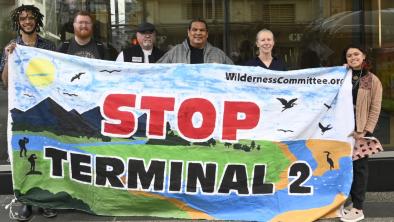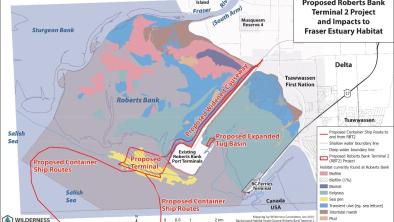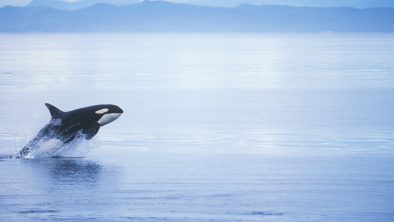Federal government sets out critical habitat for recovery of killer whales at risk
The Vancouver Sun
Environmentalists declared a victory Wednesday after learning that the federal government had issued an order setting out the boundaries of critical habitat required for the recovery of two killer whale populations considered at risk in B.C.
“It is precedent setting … the first time the federal government under the Species at Risk Act has issued an order to protect habitat,” said Gwen Barlee of the Western Canada Wilderness Committee.
The order this week by Environment Minister Jim Prentice and Fisheries and Oceans Minister Gail Shea sets out the legal boundaries for critical habitat in B.C. of endangered southern resident killer whales and threatened northern resident killer whales.
The boundaries for endangered residents include the area of Canadian water from Juan de Fuca Strait through the southern Strait of Georgia and Gulf Islands to the mouth of the Fraser River.
The U.S. has already designated critical habitat in Juan de Fuca Strait, Puget Sound, and the San Juan Islands for the same southern resident whales.
The federal action follows a lawsuit launched last year by Ecojustice on behalf of nine environmental organizations who argued Ottawa had failed to provide much-needed legal protection for killer whale critical habitat.
Lance Barrett-Lennard, a Vancouver Aquarium scientist who co-chairs the killer whale recovery team, said he is not celebrating until he sees more details on how Ottawa plans to protect the critical habitat. “This has been such a difficult road so far getting this through,” he said, noting the aquarium was not part of the law suit.
He also expressed concern that Ottawa may only respond to lawsuits in future and that no one will step up to fight for the habitat of species that lack the iconic status of killer whales.
Barlee said she expects Ottawa to publish more details in the Canada Gazette on March 4. “We still have to keep our eye on the prize and watch DFO like hawks...,” she said in an interview.
Ecojustice lawyer Lara Tessaro said she expects the March 4 publication to include a regulatory impact analysis statement, including costs and benefits of the order, from which the public “can glean DFO’s commitment to enforcing this order.”
Environmentalists note the whales are threatened by declining salmon stocks, increased boat traffic, toxic contamination, and acoustic impacts from activities such as dredging, seismic testing, and military sonar. “Obviously whales need salmon, whales need clean water, and they also need quiet,” Barlee said. “That’s part of critical habitat. We need a comprehensive approach.”
Ottawa is scheduled to release an action plan within the next four years. That’s where negotiations involving various levels of government and stakeholders, including scientists and commercial fishermen, will face some tough decisions to allow for recovery of the whales.
The situation is complicated by the fact a whale’s habitat is the water column, not a stand of trees necessary, say, for the survival of a bird or mammal.
“I don't think anyone disagrees that the task ahead is not easy,” Tessaro said.
Allison Webb, regional director of policy for DFO, could not be reached Wednesday.
After losing seven members last year, the southern resident population of killer whales gained two new calves this year. However, another adult male is missing and its status remains a cause for concern.
© Copyright (c) The Vancouver Sun

